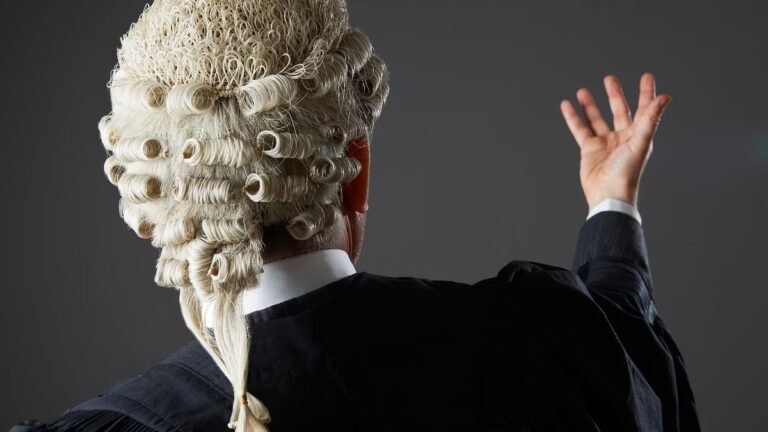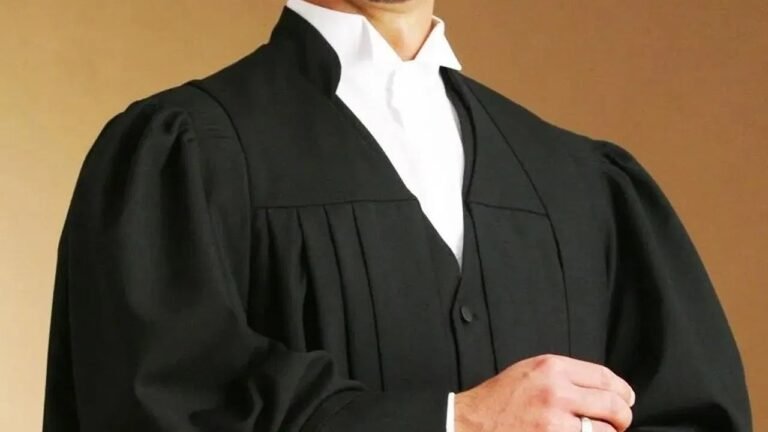Why Lawyers Wear Wigs
Why lawyers wear wigs is a question that often intrigues many people. This unusual courtroom clothing has a rich historical basis and is not merely a fashion statement. It is a deeply ingrained habit. This essay will examine the symbolic meanings, historical background, and current applicability of the practice of lawyers wearing wigs.
The Background of Wig Wearing in History
The History of Legal Wigs
In England, the practice of wearing wigs by lawyers dates back to the 17th century. Wigs gained popularity among the nobility throughout King Charles II’s reign, and as a prestige and professionalism marker, they quickly made their way into the legal profession.
The British Legal System’s Impact
The custom of donning wigs in courtrooms extended around the world as the British Empire grew. This custom was embraced by nations that were formerly British colonies, including Canada, Australia, and India, but several have subsequently broken with it.
The Development of Legal Wigs
Wigs were first worn by all social classes, but with time, they began to be identified mainly with the legal and judicial sectors. Legal wigs’ design and style have also changed throughout time, becoming more conventional and representative of the customs of the legal system.
The Meaning of Wearing Wigs: Respect and Authority
In the courtroom, wigs are a sign of respect and power. They reinforce the legal profession’s role as upholders of the law by helping to set them apart from the general public.
Anonymity and Impartiality
Wigs’ uniform look emphasizes the idea that justice is blind and should be administered without personal bias, encouraging a sense of impartiality and anonymity.
Tradition and Persistence
Wig wearers represent continuity and loyalty to enduring customs. By establishing a link between modern legal procedures and their historical foundation, it strengthens the resilience and stability of the legal system.
Reasons Why Wearing Wigs Is Practical
Identity Professional
Judges and attorneys’ distinctive professional identities are enhanced by their wigs. This dress code contributes to upholding the dignity and gravity that are appropriate in a courtroom.
Effect on the Mind
Wigs’ formal and distinctive appearance might have a psychological effect that promotes seriousness and respect during court proceedings. This may contribute to the development of a setting that supports just and efficient legal procedures.
Wig Wearing from a Modern Perspective: Adapting to Modern Values
There is a continuous discussion concerning wigs’ applicability in the present era, even if wearing wigs is still customary in some places. There are others who think that the dress code should be modified to properly represent modern values and the diverse makeup of today’s society.
Differences Between Jurisdictions
Wig wear is not a practice that is still prevalent in all nations with British legal origins. For instance, wigs are no longer required for courtroom clothing in the United States. Nonetheless, judges and barristers continue to don wigs in England and other Commonwealth nations.
FAQ
- Why do attorneys wear wigs to court?In court, attorneys don wigs to represent authority, objectivity, and tradition. This custom, which has its roots in the 17th century, is still used to represent the respectability of the legal profession.
- When did lawyers start wearing wigs as a tradition?The custom dates back to King Charles II’s reign in England in the 17th century, and the legal profession eventually embraced it as a status and professionalism emblem.
- Do all nations adhere to the custom of attorneys donning wigs?Not every nation adheres to this custom. While certain Commonwealth nations and England continue to use wigs in court, other jurisdictions—like the United States—have moved past this practice.
- Are wigs worn by lawyers for practical reasons?Yes, wigs support the solemnity and decorum of court proceedings as well as the maintenance of a distinct professional persona. They also encourage a feeling of neutrality and privacy.
- Is there a push to alter the custom of lawyers dressing in wigs?The value of wigs in contemporary society is a topic of continuous discussion. While some argue for maintaining this ancient custom, others support changing the clothing code to reflect modern ideals and the diversity of society.
In Summary
The custom of lawyers donning wigs is rich in meaning and history. Wigs accentuate the somber nature of the legal profession by serving as symbols of authority, objectivity, and continuity. The custom of wearing wigs is nevertheless a potent emblem of the timeless principles that characterize the legal system, despite suggestions from some contemporary viewpoints that this tradition be modified.




